By Travis Thompson
This August, I’ll be leaving my position in Cambodia with Ponheary Ly Foundation to move back to the United States. As I leave Cambodia, I want to reflect on my years with this incredible organization–the challenges, the triumphs, and the lessons learned are unmatched by anything else in my 31 years of life.
When I first met Ponheary Ly and Lori Carlson in early 2012, I was fresh from the Cambodian countryside, having lived with a Khmer family for two years while I taught in an English classroom at a public high school. I had considered going back to the U.S. after that commitment was up, but the moment a mutual friend introduced me to Lori and Ponheary, and they offered me a gig with PLF, I couldn’t say, “No”. The opportunity was enticing to join PLF as it went deeper with more programs to meet more needs of the 2,500 public school students already being served–a chance to put into play some of the things I’d learned about Cambodia.
It didn’t take much to gather that I was joining something truly extraordinary. Ponheary’s harrowing story of survival and the loss that her family endured during the Khmer Rouge times, combined with her family’s resilience and unending dedication to public schools in the face of giant obstacles is unmatched by any other organization or family I’ve encountered here. Add to that, the fact that Lori left her very lucrative American life to move to Cambodia, giving herself completely to this project.
I was the first foreigner to come onboard the PLF Cambodia team since Lori officially registered the organization in 2006. This was the most daunting part of the job, hands down. Lori told me from our first meeting that fitting in with the family and melding into the operation laterally, shoulder-to-shoulder with the Cambodian team, was the key to my job. There was absolutely no way this experiment of bringing a second foreigner into the office would work if I came in and started being a know-it-all with a white saviour complex.
In Cambodia, there is too often the problem of plans being made and then nothing happens. I was astounded to find a completely different world at PLF. Plans were being made and then also being followed through to completion on a daily basis. During my first day, the organization was well on its way to installing internet for the first time at one if its school technology labs. My first task was finalizing which internet provider we’d use. I saw the internet open for that school less than two weeks later, no small feat in a country in which fewer than 3% of people had access to the internet at that time. No doubt about it, things were moving at PLF, schools were going forward in small and large ways right before my very eyes.
That’s not to say that everything always goes smoothly with our projects, actually that would be a big fat lie. Each of our projects is completed despite its laundry list of obstacles that all of us have to overcome as a team. In two years with PLF, more obstacles than I could’ve ever imagined have smacked us in the face–from public school principals stealing food meant for students, to vans breaking down in the middle of nowhere, to infectious outbreaks, to flooding disasters and political uprisings that interfered with the education system.
In the midst of it all, the strength and coheasiveness of Ponheary’s family and the staff of the Foundation always shone through. During all these trials I saw firsthand that the Ly family does this work from their heart. They do it because they want their country to have a better future.
It was my first trip to Koh Ker Primary School that proved to me how extremely privileged and lucky I was to be welcomed into this organization and family. Ponheary and Lori had told me the story of Koh Ker Primary, that when they arrived for the first time in 2005, children were literally dying of malnutrition. International aid organizations refused to go there because it was “too difficult” to reach and “too corrupt”. Needless to say, no one was attending the school. By the time I made my first visit seven years later, I saw healthy children playing outside and learning in classrooms. I saw a community formerly made of up of Khmer Rouge cadres, who had been part of the destruction of the education system, now in full support of their village school. Parents were not only bringing their babies to the school to wash in PLF’s clean water system, but they were also supporting the school enough to be willing to send their Grade 7 students to live at our Srayang Dorm, 20 kilometers away. PLF’s project at Koh Ker showed the incredible positive impact of people who are doing development for the right reasons, in the most sensitive and responsive way possible.
That first day at Koh Ker Primary I knew that I’d have strong feelings for this school forever. It gets under your skin. That may be why one of the projects I enjoyed most was working with some of PLF’s first Grade 9 grads from Koh Ker as they become the first people from their village to be tour guides to the ancient Angkor capital in the jungle around their homes. As we worked together to launch Koh Ker Treks, we went on practice tours (with huge help from volunteer Torsten Tabel who lived there for one year), we worked on learning social media, we worked on learning English and business accounting. We (along with the Staffords who donated the money to start Koh Ker Treks) helped these students begin to create a future for themselves that had never been possible before. There were many difficulties, as you can imagine, working with students to try to help them put themselves in the minds of western tourists, when these students had never spent much time outside their rural Cambodian village which was hard hit by war and civil strife until the early 2000s.
After these years working alongside Ponheary and the PLF family and staff, I know that the work is crucial in the lives of these 2,500 students who may someday lead the change this country needs. Yet, when I see public schools that aren’t supported by PLF, schools that don’t have support or even drinking water, when I hear about what’s going on in health centers and hospitals, when I talk to my neighbors, friends, and the people standing at the fried noodle cart, the overriding feeling I’m left with is discontent for the situation here, and in so many other places. No matter how effective our projects are, no matter how many kids or families are working with us to make their situations better, there’s always another group of kids and families from desperate situations coming right behind them. The problem doesn’t feel like it’s going away; too often the world doesn’t feel like it’s getting any better. All this work here is so important, but it’s only a Band-Aid on our global cancer: extreme poverty.
Working alongside people who are living without adequate food, water, schools, and health facilities, I’ve seen my complicity in all of it as a privileged American who used to never think about the fact that more than one billion people live like this or worse. I had never thought about the cost of my privilege, until I got here and the cost looked me in the face.
After these years, I can’t help but think the way to a better world starts in countries where privilege is abundant. I can’t help but think the way we choose to live our lives in the rich countries could make the world better, especially for people toiling in faraway lands. But, we have to be willing to take a look at ourselves.
As I get ready to move to Seattle in August, the hardest part will be leaving Ponheary and her family, including PLF President Lori Carlson who has become not only a best friend, but also a mentor, showing me what it truly means to be an activist, and to check my path. As Lori told me, the most important piece of my job was immersing myself in the Ly family. It also became the easiest part of the gig as the Ly family went out of their way to bring me into their circle. They made their home mine.
All the Ponheary Ly Foundation family, staff, and friends will forever influence my choices and future—a future that will keep me close to Cambodia and PLF. I’ve just become the Foundation’s newest board member. I’m headed to University of Washington to study public policy and international development. I hope to stay in touch with all of you because I consider you family now too.

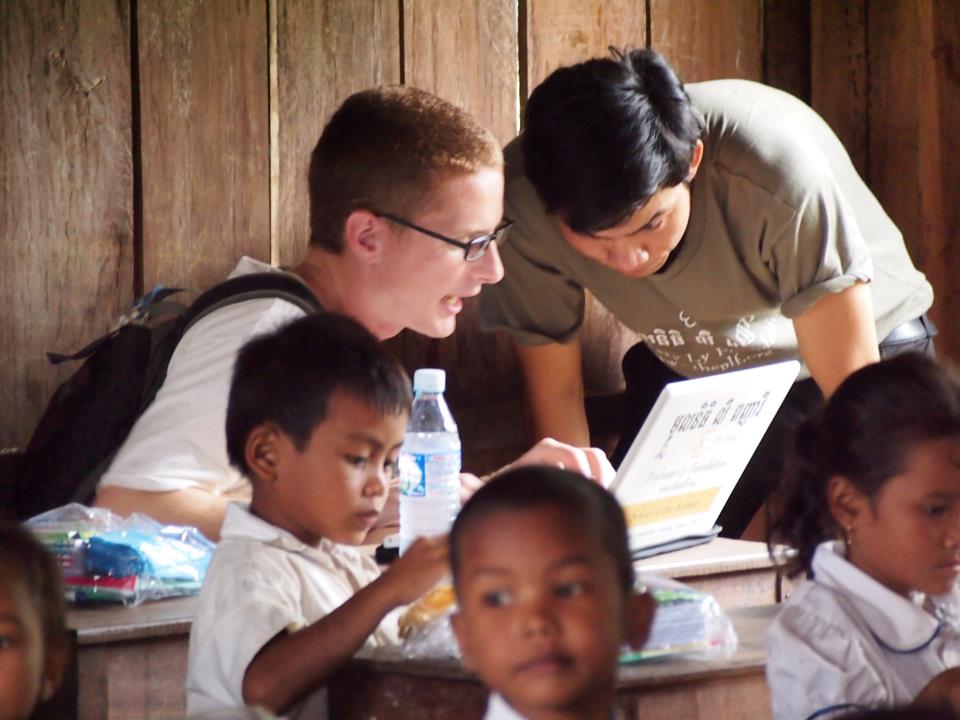
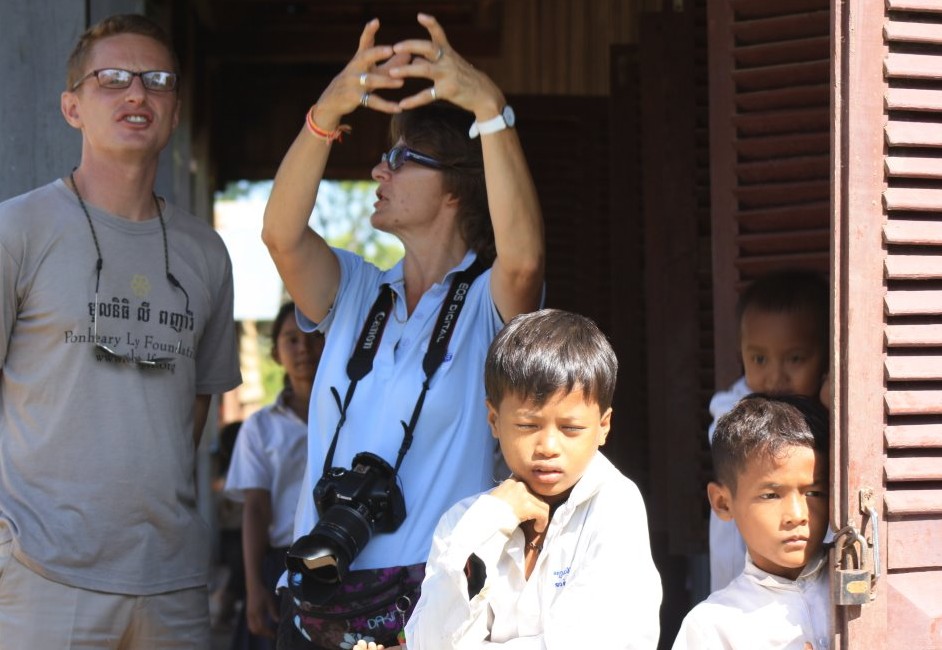
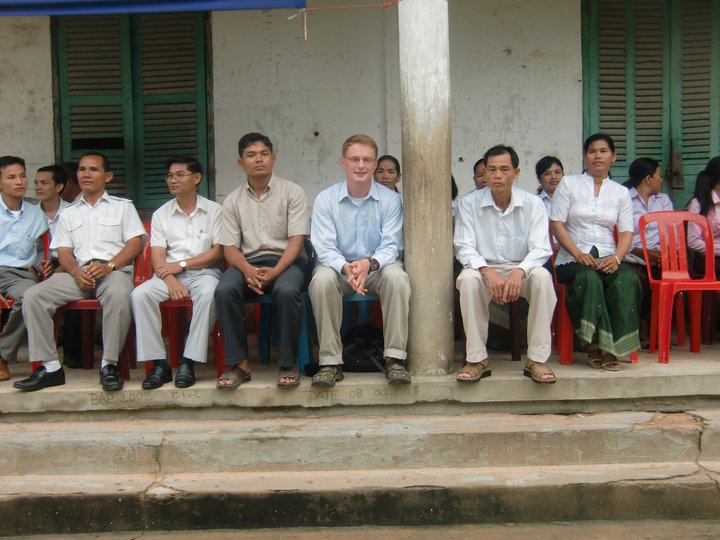
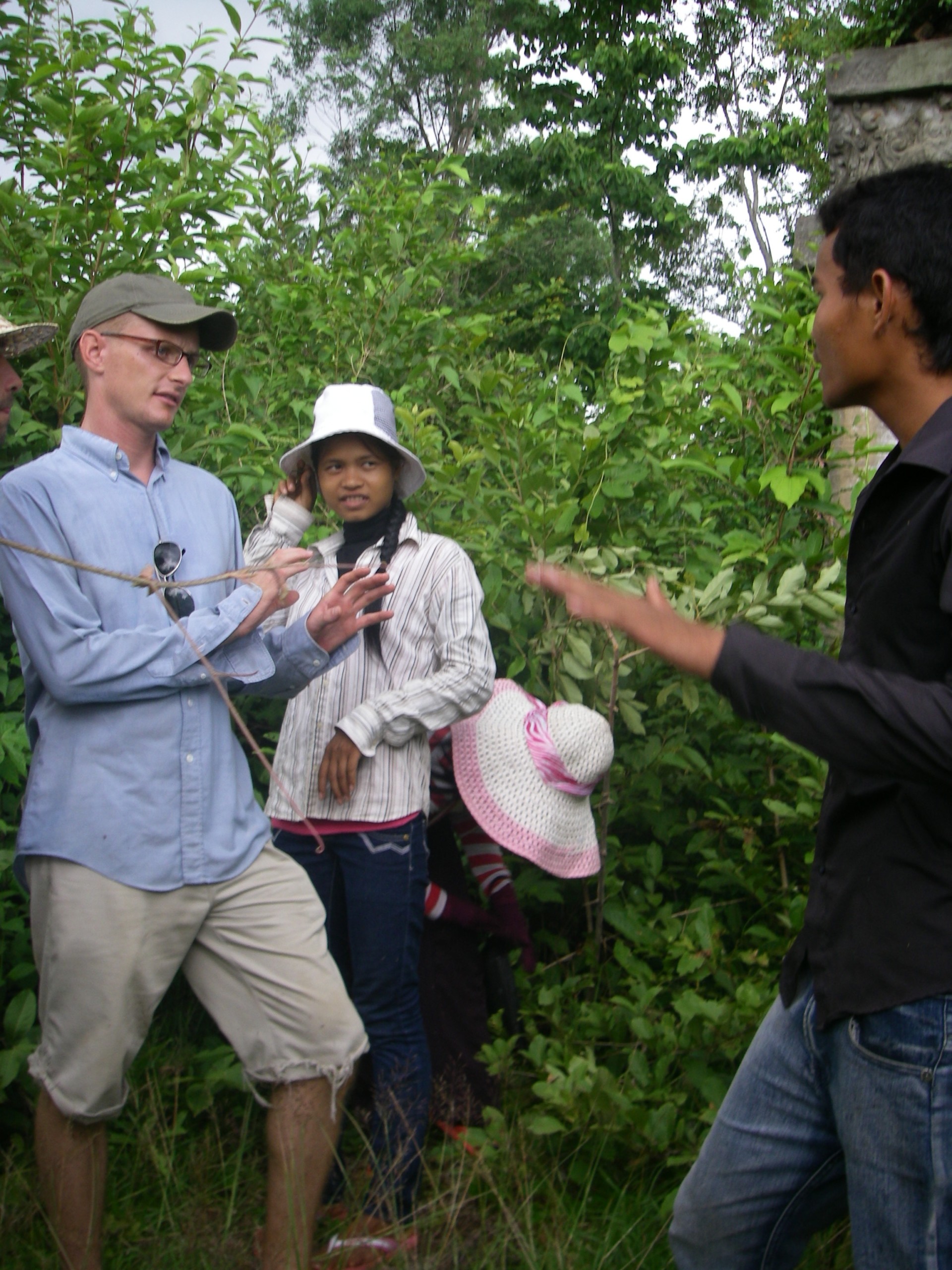
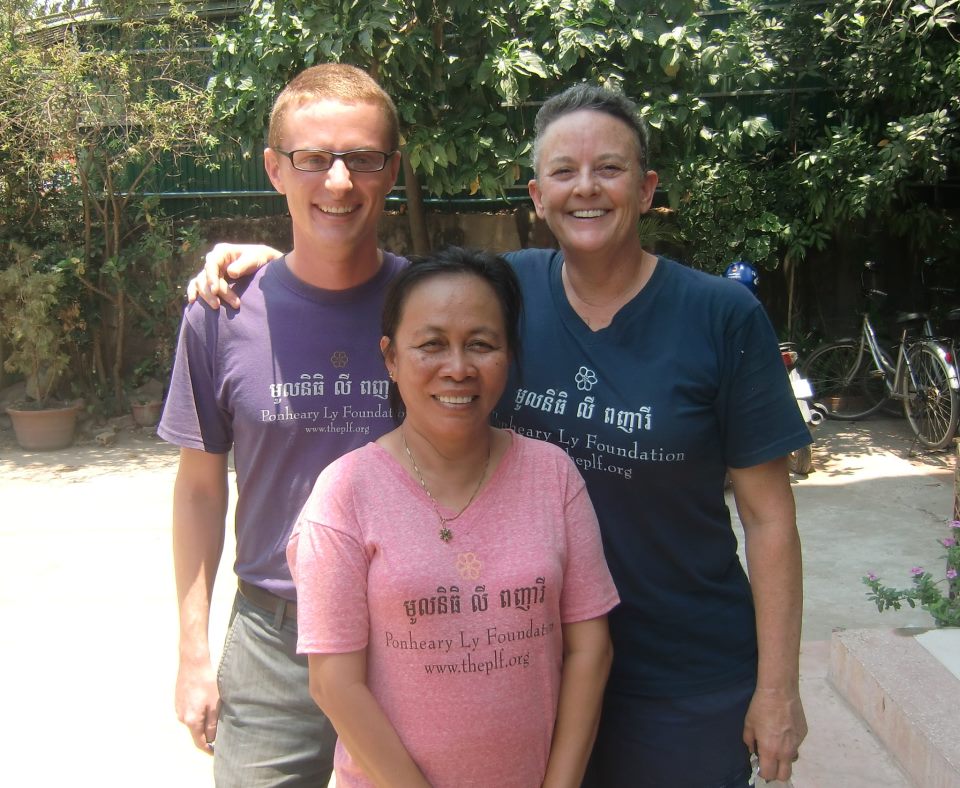
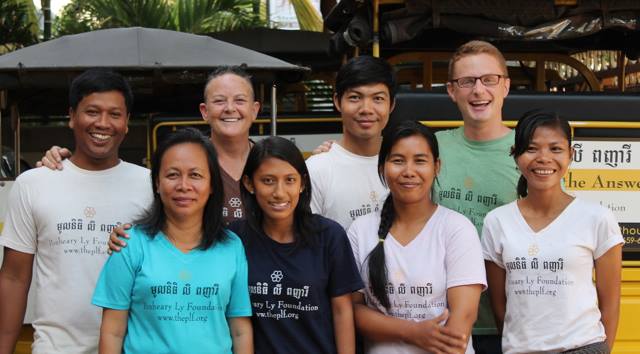
Please put me on the list of people who will miss you here in Cambodia. <3
Good luck with your studies Travis. PLF will most certainly miss you, however you will remain connected. My friend Jane speaks so highly of you, with reason! All the very best
All the best Travis! I love how it all just happens. The right things in the right place. Big hug!
This kind of social studies doesn’t come in a textbook does it Travis? I’m proud of your courage and determination to follow your heart, to learn along the way, to take risks, and definately make a difference to those you encountered.
Travis, Good luck with grad school. With your knowledge and experience you could teach the classes in International Development! We were so impressed with the work you (and PLF) are doing in Cambodia. We were lucky enough to spend a day with you at Koh Ker school in March, it was a humbling experience to see your commitment to the children and programmes.Alma and Ron